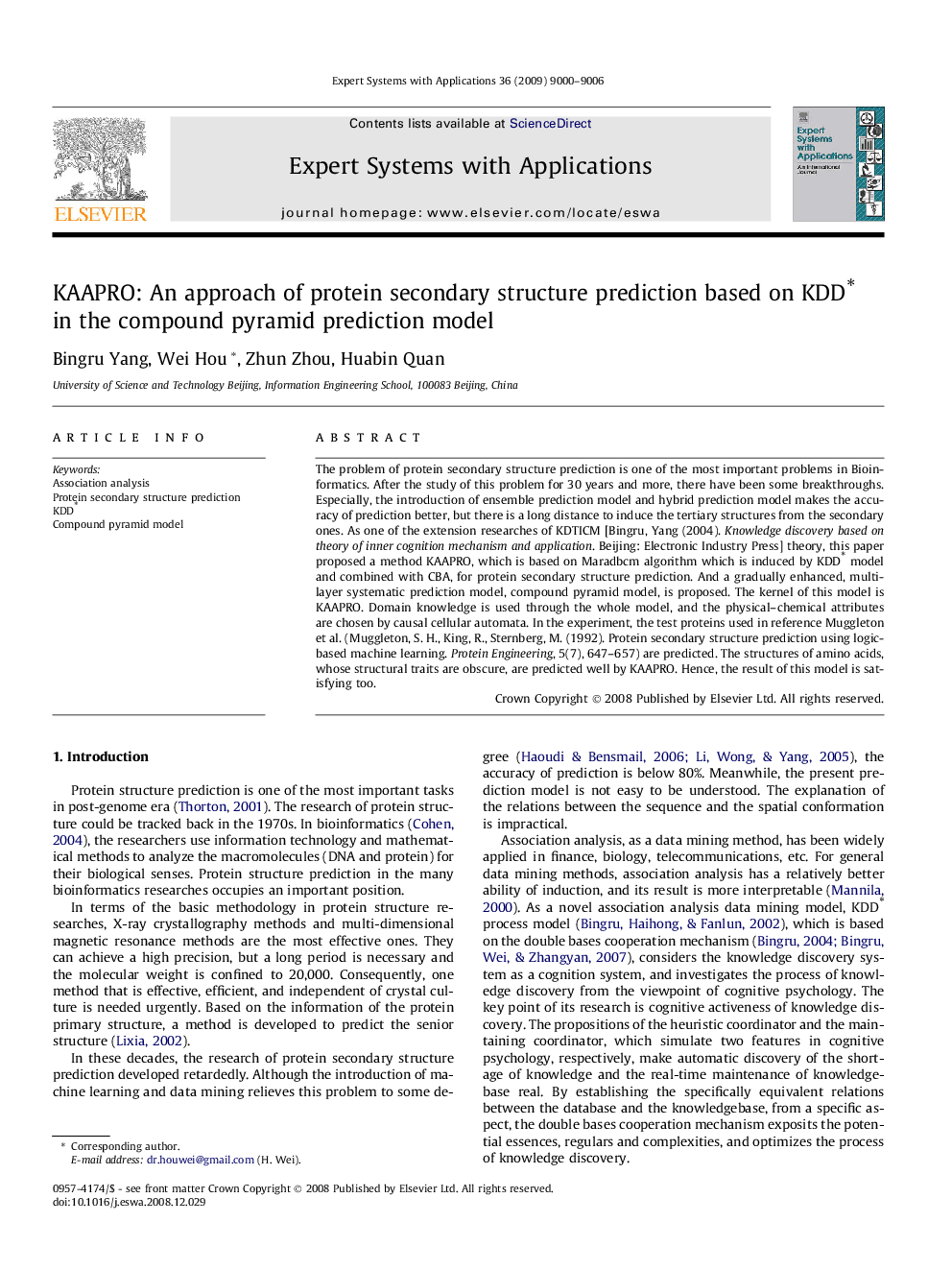| کد مقاله | کد نشریه | سال انتشار | مقاله انگلیسی | نسخه تمام متن |
|---|---|---|---|---|
| 386949 | 660893 | 2009 | 7 صفحه PDF | دانلود رایگان |

The problem of protein secondary structure prediction is one of the most important problems in Bioinformatics. After the study of this problem for 30 years and more, there have been some breakthroughs. Especially, the introduction of ensemble prediction model and hybrid prediction model makes the accuracy of prediction better, but there is a long distance to induce the tertiary structures from the secondary ones. As one of the extension researches of KDTICM [Bingru, Yang (2004). Knowledge discovery based on theory of inner cognition mechanism and application. Beijing: Electronic Industry Press] theory, this paper proposed a method KAAPRO, which is based on Maradbcm algorithm which is induced by KDD∗ model and combined with CBA, for protein secondary structure prediction. And a gradually enhanced, multi-layer systematic prediction model, compound pyramid model, is proposed. The kernel of this model is KAAPRO. Domain knowledge is used through the whole model, and the physical–chemical attributes are chosen by causal cellular automata. In the experiment, the test proteins used in reference Muggleton et al. (Muggleton, S. H., King, R., Sternberg, M. (1992). Protein secondary structure prediction using logic-based machine learning. Protein Engineering, 5(7), 647–657) are predicted. The structures of amino acids, whose structural traits are obscure, are predicted well by KAAPRO. Hence, the result of this model is satisfying too.
Journal: Expert Systems with Applications - Volume 36, Issue 5, July 2009, Pages 9000–9006